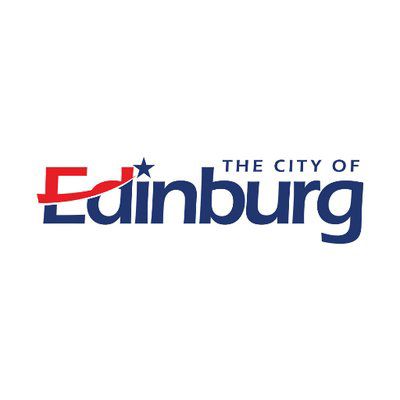EDINBURG — Council members here will ask voters in November to consider raising taxes for the first time in over two decades to help pay for basic infrastructure needs.
The Edinburg council voted last week to order a special election calling for a $30 million bond. If passed, city leaders expect to allocate $10 million toward roadway and traffic improvements and $20 million for drainage needs.
That amount, however, would not cover the much-needed improvements, Edinburg City Manager Pilar Rodriguez told the council. His staff identified about $175 million worth of needed upgrades, but said the city is in no position to borrow that kind of lump sum.
“ Some of the reasons that we can’t afford that, is that we currently have a lot of debt issued,” Rodriguez said. “A lot of it is pledged with our property tax, some of it through the economic development corporation … but the bottom line is, we don’t have the ability right now to issue any more debt or borrow any more money without raising the taxes.”
If voters pass the referendum in November, the city will increase its tax rate by nearly five cents, taking it from 63.5 cents per $100 valuation — a rate it’s been set at for the past 23 years — to almost 68.5 cents. For the average homeowner, a five-cent increase would amount to an additional $62 a year in taxes, the city manager estimated.
“We’re maxed out on our credit,” Rodriguez said.
Over the past decade, the city of Edinburg has issued about $62.5 million worth of debt for the construction of several facilities, including parks, a new fire station, a police training facility, a wellness center and the new Bert Ogden Arena among others.
Of that $62.5 million, we still owe about $49 million,” the new city manager said.
Last year, the debt service fund, or the money the city uses to pay down its yearly debt, amounted to about $3.2 million. This coming fiscal year, the city expects to pay almost $4 million to pay off its creditors.
The current council blames former elected leaders for the financial situation the city is in, saying they used creative financing to push through several projects without regard for the city’s future financial health.
“The creative financing that was done was to get the deal done — get the short-term goal taken care of — but it didn’t take into account the long-term effect it was going to have on our city, on our budget,” Councilman Gilbert Enriquez said. “The public needs to understand that creative financing is going to help the short term to get your goal accomplished … but basically you leveraged the future of our city and the taxpayer for (as) many years as that debt service.”
Enriquez also said former leaders did not properly invest in the growth of the capital improvement plan, which is a pot of money set aside to expand and maintain infrastructure needs.
“If you had a good council that had their agenda in the right pace, their priorities in the right place, that capital improvement plan would have been grown so we could have money in that fund to do our major drainage, our major roadways as we go,” Enriquez said. “I’m holding the elected officials, past elected officials, accountable for the position that we’re in — not the staff, not the city manager, no one like that — because basically the council is the one that decides how to budget and where that money goes.”
Rodriguez said he was working with the finance director to lower the city’s operating budget from about $55 million to $54 million in order to continue addressing such needs.
“Infrastructure has a life cycle,” he said. “Most of it is pretty long, but you have to plan for it because eventually you will get there.”
Councilman David Torres lamented having to ask voters to approve a bond issuance, but felt it was necessary for the city, which is prone to flooding.
“We’re in a real tough situation — stuck between a rock and a hard place,” he said. “Nobody likes to increase taxes, but … I don’t want to be in a situation three years from now where we didn’t even try anything. If the people vote it down, so be it, but we have to try to make improvements to the city, and unfortunately we’re having to face the music.”
Edinburg Mayor Richard Molina pointed out that the council doesn’t have to ask voters for their approval to issue a $30 million bond. But unlike Hidalgo County commissioners, who did not ask voters to approve a $150 million courthouse, Molina wanted to put the decision in the hands of the voters.
“We’re choosing not to do it that way,” he said about the county’s approach to debt. “We’re choosing to go to the voters.”
Edinburg residents are also facing another potential tax rate increase from the Hidalgo County Drainage District No. 1, which will ask voters in November to approve a $190 million bond for improvements to its system. If passed, the bond would increase the district’s 9.5 cent tax rate by three cents.





